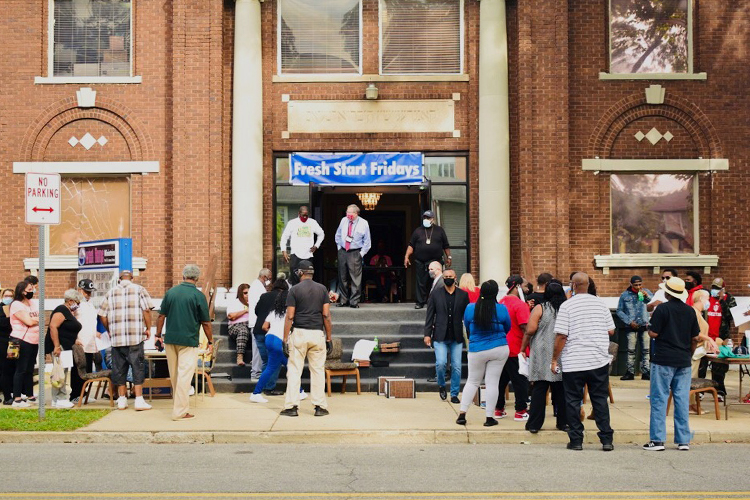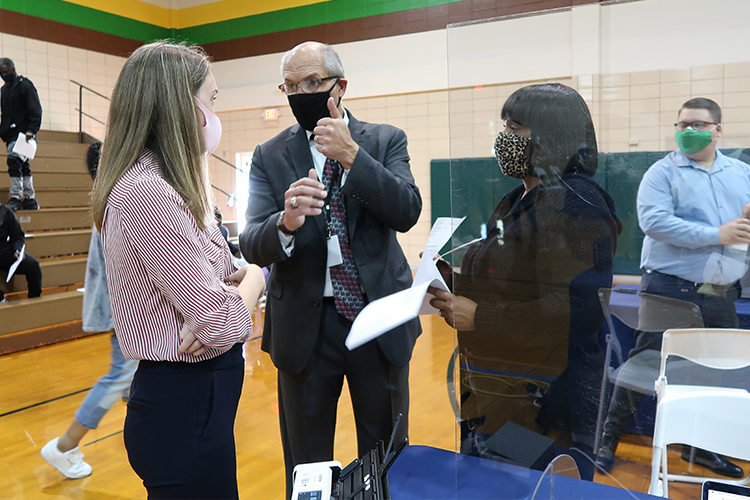By St. Joseph County Judge Andre Gammage
According to a database of laws compiled by the American Bar Association’s Criminal Justice Section, “collateral consequences” all too often regulate the lives of people with criminal records, dictating where they work, where and with whom they live, and how they spend their time. As a result, after they have served their sentences, and long after they have finished probation or parole, people with misdemeanor and felony convictions remain effectively imprisoned.
In 2013, Indiana enacted an expungement statute that provided a path for eligible citizens to have convictions expunged, so long as their sentence has been completed and requisite time has passed. The statute also makes it unlawful to discriminate against a person who has obtained such an expungement. However, most people in need of an expungement find the statute difficult to navigate.

My cousin (Keith Gammage), Solicitor General of Fulton County, Georgia, initiated an expungement effort and described it as an opportunity for families. I felt it was my responsibility to lead a similar initiative in my own county and bring about the opportunity intended by the statute—to allow justice to be served in an unconventional way and oblige those who could not partake in it because of their economic status.
I gathered judicial officers, community leaders, and clergy to develop a series of four expungement clinics. At the suggestion of St. Joseph County Judge Steven Hostetler, we called the effort, “Fresh Start Fridays.” St. Joseph County Prosecutor Ken Cotter boldly agreed to file the expungements, and several members of his staff volunteered to help process petitions. University of Notre Dame Law School students helped with research and petitions. The law firm of Barnes and Thornburg contributed personnel. The City of South Bend and the South Bend School Corporation committed personnel and facilities. I secured radio time, television interviews, distributed fliers, and toured local churches to announce our free effort.
Sweet Home Church held the first clinic. The church is located across the street from a public housing project and is pastored by Bishop Erskine Jones, a known advocate for the underserved. Intake was in the lobby of the church with socially-distanced waiting in the sanctuary and research and processing in front of the pulpit. We had plexiglass, masks, computers, a scanner, and a host of volunteers. Petitions for expungement and reinstatement fee waivers were to be completed that day.
Superior Court Chief Judge Elizabeth Hurley and the rest of our judges and magistrates were prepared to sign 100 orders within days of the first clinic. We planned to repeat the process following three clinics set for four consecutive Fridays; however, when 400 hundred people came to the first clinic for help—and even more at the following clinics—we had to change our plan.
We were scheduled from 5:00 p.m. to 8:00 p.m. People anxiously began lining up at 1:30 p.m. We moved much of our process to the sidewalk in front of the church, where we set up tables commandeered by the local Monterrosa Law Group. People stood in line for over four hours. They waited years for an expungement, and it seemed they weren’t going to leave until their request was considered. We weren’t leaving either. We finished at 11:00 p.m. with a spotlight propped on the church steps as the last petitions were scanned into our lone scanner. Each Friday thereafter, the line of people grew. We served over 1,000 during the four clinics and continue to improve the efficiency of the processes for future clinics.

University of Massachusetts Amherst legal scholar Joshua Kaiser uses a term he calls, “hidden sentences.” They are not the formal courtroom sentences people receive for crimes but the felony or misdemeanor sentences that quietly lock people out of labor and housing markets, making many convictions life sentences. We heard firsthand about those hidden sentences as we processed the requests.
One woman drove from Florida to get her conviction expunged. Others came from Texas and Missouri. One woman couldn’t afford to pay her license reinstatement fee. Her driver’s license had been suspended for over 20 years. She was indigent. She got her fee waived and got her license. One man told of how he had been turned away from his daughter’s school function because of a 25-year-old drug conviction, but now with his expungement he will be able to visit school with her. Most people were excited to have the opportunity to get a better place to stay, a better job, or to just feel better about themselves having their conviction expunged. Those who received waivers and expungements were appreciative and pleasantly surprised to see members of the judiciary working to help them. Their appreciation was matched by our sense of joy. We had taken a step toward making our community a better place for all.
The Indiana Code of Judicial Conduct encourages judges to participate in extrajudicial activities, stating that, “participation…helps integrate judges into their communities and furthers public understanding of and respect for courts and the judicial system.” The Fresh Start Fridays initiative is a community effort lead by the judiciary. There is much work to be done in each of our communities, particularly in the areas of justice and equality for the poor, minorities, and the disenfranchised. In that effort, we can do what we are bound to do. We can lead.